British Airways has agreed to accelerate the Project Speedbird large-scale sustainable aviation fuel production initiative it created in 2021 with LanzaJet and Nova Pangaea Technologies. As part of the agreement, the airline’s parent company IAG will invest in the next phase of development work, with construction to begin possibly as early as next year and production to start in 2026. Located in the north-east of England, the project would transform agricultural and wood waste into 102 million litres of SAF per year, which BA would offtake to help power its flights. Meanwhile, the airline has also launched enhanced online platforms for its corporate and individual customers to calculate flight carbon emissions and mitigate their climate impact. Customers have previously been able to use the airline’s carbon offsetting tool to purchase offsets and sustainable aviation fuel but in a partnership with climate tech company CHOOOSE, the new CO2llaborate programme will give them more control over the amount of SAF versus verified carbon offsets they wish to purchase.
Project Speedbird was granted nearly £500,000 ($570,000) by the UK’s Department for Transport (DfT) ‘Green Fuels, Green Skies’ competition to fund an initial feasibility study for the early-stage development of the project. With the work now completed, the next stage of development is now ready to proceed, says British Airways, and the partners have applied for an additional grant from the DfT’s Advanced Fuels Fund.
“SAF is in high demand but in short supply across the globe and so it is essential that we scale up its production as quickly as possible,” commented the airline’s Director of Sustainability, Carrie Harris. “With further investment and continued government support, Speedbird will be a key and pioneering project in the production of SAF here in the UK.”
Once in operation, the facility would be the first in the UK to utilise independently verified sustainably-sourced agricultural and wood waste to produce SAF. The SAF will be developed using a combination of technologies based on Nova Pangaea’s REFNOVA proprietary patented process of converting the waste into bioethanol and also biochar, a carbon-rich charcoal-like material left over after processing and considered a natural carbon removal method. Biochar can be used to amend and restore impoverished soils by better retaining nutrients required for plants to grow, and by filtering healthy water for accelerated crop growth, delivering a circular economy for the agriculture industry. Biochar can replace fertilisers that use fossil fuels as their feedstock and removes carbon from the atmosphere, with the potential to generate high-integrity carbon credits.
“This project will deliver the first end-to-end, sustainable value chain from agricultural and wood waste to SAF in the UK,” said Sarah Ellerby, CEO at Nova Pangaea Technologies, which has a pre-commercial plant expected to be in commercial production in 2023. “The support from British Airways is a vote of huge confidence in our technology and will accelerate its commercialisation.”
Added Harris: “The biochar carbon removal opportunities are another important aspect of this impressive, innovative project that can contribute to our net zero action.”
LanzaJet’s proprietary and patented alcohol-to-jet technology will be utilised to convert the bioethanol to produce SAF and renewable diesel.
The SAF produced would reduce net lifecycle emissions by 230,000 tonnes a year, claim the partners, the equivalent emissions of around 26,000 British Airways domestic flights. Overall, the facility would have the potential to reduce CO2 emissions by up to 770,000 tonnes a year through the additional production of biochar and 11 million litres of renewable diesel.
“The UK is a critical market in the decarbonisation of the aviation industry and this partnership brings together the full value chain from agricultural and wood waste to finished SAF and use by British Airways. As the UK sits at an inflection point in its quest to decarbonise, Project Speedbird represents historical significance with an eye towards the future,” commented Jimmy Samartzis, CEO of LanzaJet. The airline is already an investor in LanzaJet, which last month announced it had received a $50 million grant from Breakthrough Energy towards funding of its Freedom Pines Fuels SAF facility in Georgia, US.
Under a multi-year agreement with energy company Phillips 66, BA is already using supplies of SAF produced at the Phillips 66 Humber Refinery, also in north-east England, to power a number of its flights from London Heathrow, and the airline’s customers can contribute towards purchase of the SAF to reduce their flight emissions.
Under its partnership with CHOOOSE, the CO2llaborate programme has new platforms for corporate and individual customers. Individuals can take climate action before, during or after their journey, and offers a more precise emissions calculation than before and more control over the amount of SAF versus verified carbon offsets they wish to purchase through a new adjustable slider feature. They can access the platform directly from their seat during flight using the airline’s free wi-fi portal, or at any time before or after their flight by visiting the CO2llaborate platform accessible on ba.com. Choosing the carbon offset option supports a rainforest protection project in the Democratic Republic of the Congo and an energy-efficient cookstove project in Nigeria, in line with the UN Sustainable Development Goals.
In a first for corporate customers, the CO2llaborate platform will also offer a dedicated climate programme for companies to measure, reduce and manage the carbon emissions associated with their business flying. They will get access to a dashboard that shows the CO2 emissions generated from their business travel and receive monthly emissions reports. Companies will then be able to select how to address their carbon emissions by selecting specific climate solutions ranging from purchasing SAF to contributing to certified carbon offset projects. BA says the platform will enable users to track and report on their climate impact over time and learn about the climate solutions they are supporting.
“We know that many of our customers want to fly with sustainability in mind and while we work on delivering our own short, medium and long term initiatives to achieve net zero emissions by 2050, we know many of our customers want to take action today too,” said BA’s Harris. “This new CO2llaborate platform further empowers our customers to make sustainable choices when flying with us. We look forward to working with CHOOOSE to evolve the platform as we continue to drive the decarbonisation of our industry.”
The venture-backed, Norway-based CHOOOSE describes itself as a complete platform that enables its partners to build and manage high-impact climate programmes through flexible integrations, customer-friendly interfaces, automated carbon measurement and a connected marketplace of climate solutions.
“Partnering with British Airways is a true milestone in bringing climate solutions to both leisure and corporate travellers,” commented CHOOOSE CEO and Founder Andreas Slettvoll. “British Airways has always been a north star to us in innovation in the airline industry and we are proud to support them in their relentless work on their most important journey yet, their journey to net zero.”
Image: British Airways


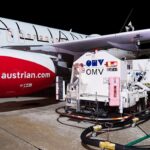
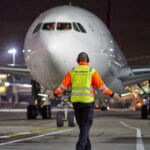
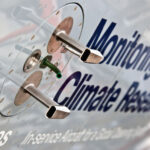


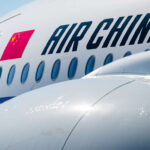
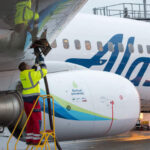
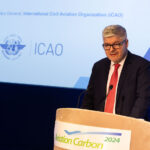
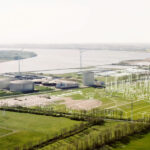
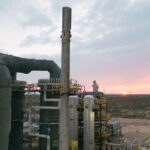
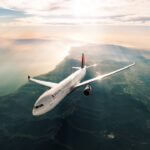
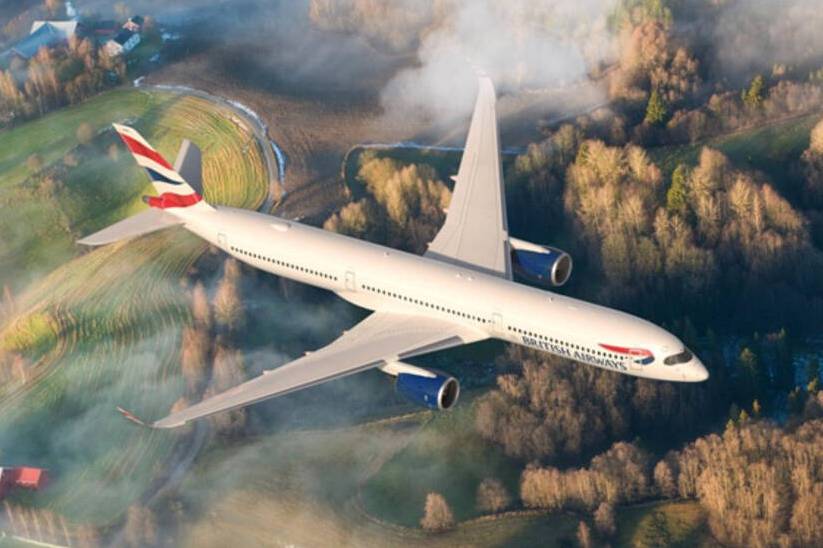

More News & Features
Progress on decarbonising the airline sector has been slow this year, says IATA chief
EASA releases status report on Europe’s SAF production and readiness to meet blending targets
New partnerships formed to drive e-SAF production in Nordic markets
IAG continues to go big on e-SAF as it inks 10-year offtake agreement with Infinium
US on the pathway to achieving its 2030 SAF Grand Challenge target, says DOE report
Advocacy group launches to speed up production and use of SAF across Asia